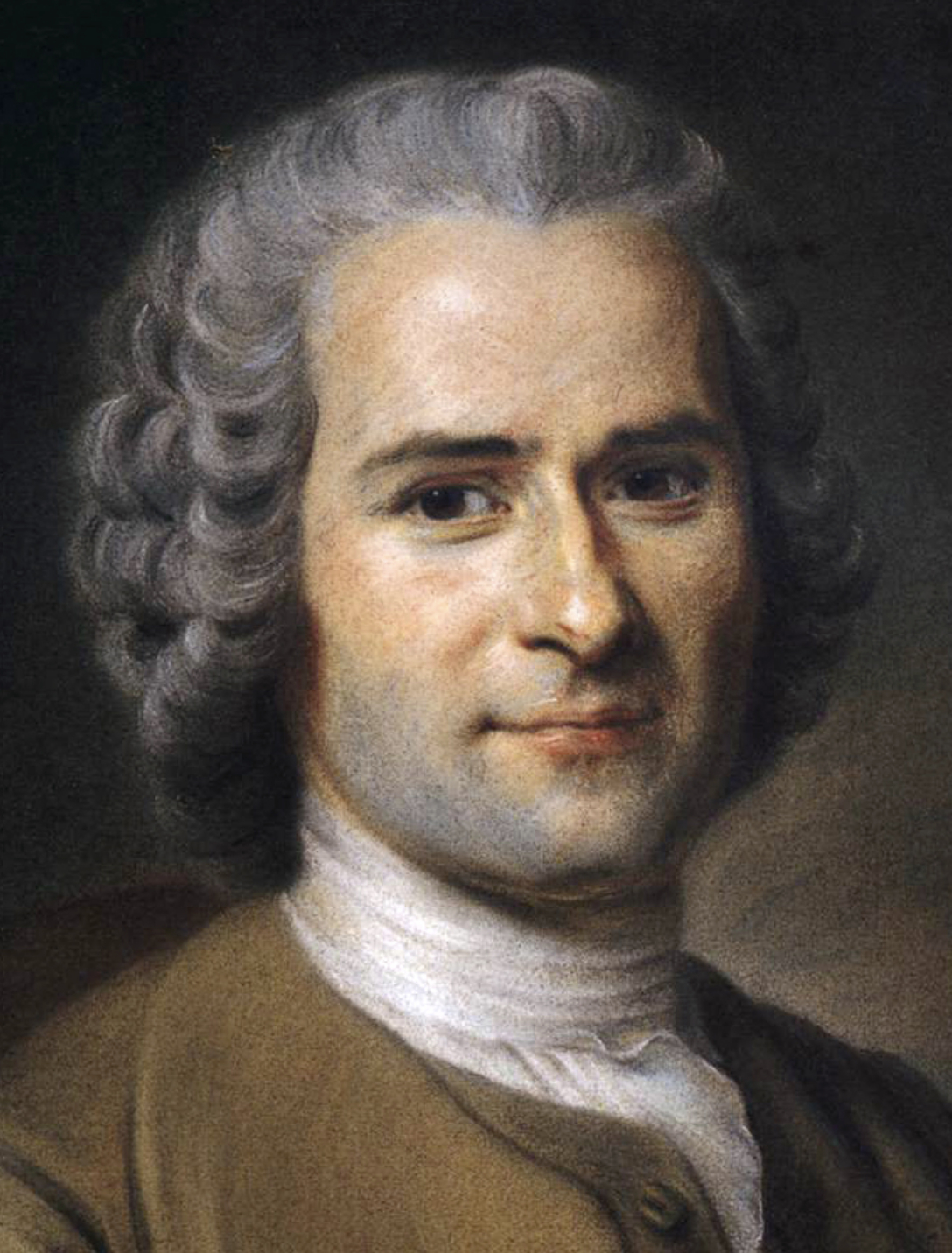On this date in 1712, Jean-Jacques Rousseau was born in Geneva, Switzerland, of French Huguenot parents. His mother died giving birth to him. As a young lad he was apprenticed to an engraver but ran away at age 16 and went into domestic service. His Catholic employer, Mme. De Warens, took him as her lover and allowed him to study literature and philosophy.
In 1741 he moved to Paris and met freethinkers Diderot and D’Holbach, and was asked to write about music for the Dictionnaire Encyclopedique. Rousseau is known for promulgating the idea of the “noble savage” living in a “state of nature,” but intellectual historian Arthur Lovejoy wrote that that misrepresents Rosseau’s thinking.
While living with wealthy patrons, Rousseau worked for eight years writing the novel Julie, ou la nouvelle New Heloise (1760), The Social Contract (1762) and Emile (1762), a treatise on education. The Social Contract introduced the motto “Liberte, egalite, fraternite.” As a Deist with kind words for the gospels, Rousseau was less radical about religion than his friends, perhaps more interested in pursuing his romantic vision of human nature: “Man is born free; and everywhere he is in chains.” He believed in a “religion of man.”
Despite Emile’s sympathetic words for the rights of children, Rousseau gave the five illegitimate children he fathered with a hotel maid to foundling homes. His Letters Written to Montaigne (1762) promoted freedom from the church. His arrest was ordered in Paris after publication of Emile and he fled to Switzerland, where officials, in addition to condemning Emile, also condemned The Social Contract and expelled him. Rousseau took refuge in Neuchatel under the King of Prussia but was eventually driven out for his “irreligion.”
He wrote Confessions in England and resettled in Paris in 1770. Freethought biographer Joseph McCabe wrote, “His character was far inferior to that of the ‘irreligious’ Deists of Paris. He was, in fact, the most religious and least virtuous of ‘the philosophers’; far inferior in nobility of character to the Agnostics Diderot and D’Alembert, and more faulty than Voltaire. We must, however, not forget his unhappy circumstances and temperament. He rendered monumental service to his fellows.” (A Biographical Dictionary of Modern Rationalists.) (D. 1778)
PHOTO: Portrait of Rosseau by Maurice Quentin de La Tour, 1753.


